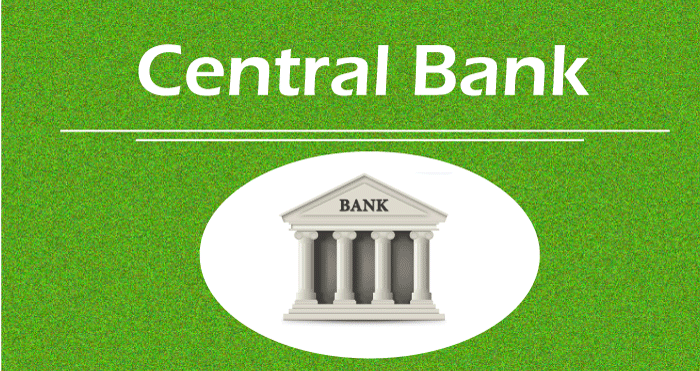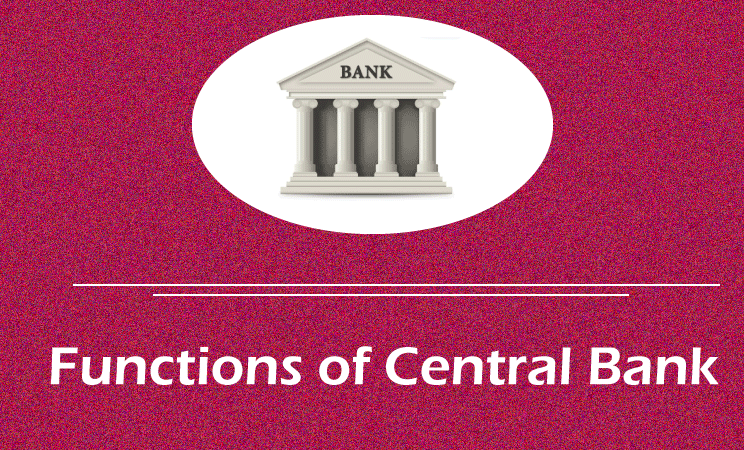Central BankWhat is a Central Bank?The central bank is regarded as the most potent financial institution in the banking system and is seen as a crucial component of a nation's economic and financial system. The nation's monetary and financial system is monitored, regulated, and stabilised by the central bank, an independent body. Every nation has its central bank. India's central bank is the Reserve Bank of India (RBI), established in 1935. The responsibility of central banks is to ensure the nation's financial stability and economic sovereignty. 
A central bank is a financial entity with authority to print and distribute money (and credit) for a country or group of countries. In the contemporary economy, the central bank is also in charge of overseeing member banks and developing monetary policy. Features of Central BankThe fundamental characteristics of central banks are that they're not based on the market and are anti-competitive organisations. A central bank's significant features are:
Functions of the Central Bank
The body of the government that oversees most of its financial activities is the central bank. The central bank's primary goal is to assist in a nation's economic policy by influencing how financial entities act through its different operations. Reserve Bank of India, commonly known as RBI, is a statutory bank that serves as India's central bank. Printing currency notes and controlling the money supply are the two main responsibilities of the RBI in India. The below mentioned are the functions of the Central Bank in the Money Market: Regulator of CurrencyThe Central Bank is the only institution in the nation with the sole authority to print currency notes, which is the primary role of the central bank. Banker and Advisor to the GovernmentThe central bank serves as the government's fiscal agent by keeping the deposits of both the federal and state governments. Along with purchasing and selling foreign currency, it also performs financial transactions on the government's behalf. One of a reserve bank's many roles as an advisor is to provide the government with helpful recommendations concerning monetary policies and other economic topics. Custodian of Commercial BanksAccording to the law, commercial banks are required to maintain reserves equal to a specific portion of the NDTL (net demand and time liabilities). Through the transfer of money between banks, these reserves assist commercial banks in clearing checks. Due to its role as a lender of cash reserves to commercial banks and as their custodian, it facilitates core transactions. Custodian and Manager of Foreign Exchange ReservesThe central bank purchases and sells foreign currency at market rates to maintain exchange rate stability. It purchases foreign currencies when there is an excess supply and sells them at foreign exchanges when there is a shortage in the economy. Additionally, it serves as a government repository for gold and foreign currency. It offers set prices when selling gold to other nations' monetary authorities. Lender of Last ResortThe Central Bank provides accommodations in the form of re-discounts or collateral advances to commercial banks, financial firms, bill brokers, etc. These loans are made using treasury bills, government bonds, and other types of government securities. Such steps are taken in difficult times to save the country's financial system from crumbling. Credit ControllerThe Central Bank oversees the credit that commercial banks create. When it determines that there is a sufficient supply of money that could lead to inflation, it enacts strict monetary policies. To control inflation, it reduces the money supply. Two methods-the quantitative and the qualitative-are used to control the flow of credit in the nation. Transfers and SettlementsThe central bank serves as a "clearinghouse" by offering commercial banks free services to transfer and settle their interbank claims. It helps with the clearing of checks by transferring money between banks as it owns the reserves of commercial banks. This process makes transfer entries into their accounts by adhering to bookkeeping principles. In major cities and commercial hubs, the central bank runs a separate division that transfers and settles the claims of one bank against another. Importance of Central BankThe core of any nation's monetary system is its central bank, and its decisions have a significant impact on a nation's economy. They are the main governing body responsible for ensuring that the boom-and-bust cycle of the financial and economic markets doesn't affect the course of the national economy. A nation's central bank ensures that the economy grows steadily and stably. Examples of Central BankThe following are a few internationally renowned central banks:
|
 For Videos Join Our Youtube Channel: Join Now
For Videos Join Our Youtube Channel: Join Now
Feedback
- Send your Feedback to [email protected]
Help Others, Please Share









